Increasing a dog’s weight requires a diet high in protein & fats. These foods include lean. Cooked meats like chicken, turkey, & fish. Foods formulated specifically for weight gain. Such as high-calorie dog food or puppy food. Can also help. Adding more calories to their diet through healthy supplements like fish oil or peanut butter can also contribute to weight gain. However. Sudden weight gain can be harmful. So consult with a vet before making significant changes to your dog’s diet.
The best foods for dogs to gain weight. Discover high quality. Nutritious foods can help your canine companion gain weight healthily. Make mealtime a weight-gain success today.
best foods for dogs to gain weight
Quality dry dog food. Often referred to as kibble, it offers an excellent avenue for weight gain. A properly formulated kibble presents a calorie-rich source that enhances your dog’s weight gain journey. Ensure you pick nutrient-dense options. Filled with premium energy sources.
When selecting the ideal kibble, consider brands that use raw or freeze-dried ingredients. For expert advice on finding The right weight-gain diet for your dog,. Consult relevant dog nutrition guides.
Remember, the avoidance of low-quality fillers remains a must. Such components only provide artificial bulking with negligible nutritional benefits.
Canned Wet Food: A Healthy Choice for Weight Gain
Wet food. Typically packaged in cans. It helps your furry friends put on some healthy pounds. More appetizing & rich in moisture. Wet food entices even The fussiest of eaters.
For this food type,. It’s advisable To opt for grain-free options. Grains may lead To intolerance or allergies in pups.
Additionally. Choosing canned food high in animal proteins will nourish & encourage weight gain in your dog.
Saturn Raw Food: A Holistic Approach for Enhancement in Weight
A raw. Or ‘Saturn’. Diet has many devotees in The dog parent community, & with good reason. Two major components dominate this diet. specifically raw meat & bones. This provides dogs with plentiful calories & essential nutrients that contribute significantly To weight gain.
From personal experience. I observed impactful changes when I transitioned my dog onto a Saturn diet. He started with consuming small portions. Eventually. We hit a steady increase in weight when we increased portion sizes.
You’ll find options in commercial raw diets as well as DIY meal prep guides online. However. Hygiene & freshness remain crucial components in delivering a safe & beneficial raw diet. Further expert advice on augmentation in your dog’s weight can be obtained from this dog nutrition guide.
Adding Dog-Friendly “People” Foods To Their Diet
You can add some dog-friendly foods to your pet’s meals To promote weight gain. Consult your vet for suitable items & portion sizes before introducing any of these into your pup’s diet.
Pumpkin & sweet potatoes supply fiber & nutrients. Chicken & fish offer lean proteins. These can provide colossal caloric benefits To your underweight dog.
Stay away from harmful items like chocolate. Onions & grapes. Although healthy for humans,. They’re toxic To dogs & can cause various health issues.
High-Caloric Dog-Friendly Snacks & Treats
Dog-friendly snacks & treats can become part of your weight-gain strategy for your hound. The market boasts an array of high-calorie treats designed for weight gain.
Treats such as bully sticks or liver bites generally contain high calorie & protein. They can act as an effective supplement To regular meals for bolstering weight gain.
Besides the commercial options,. DIY homemade treats also aid your fur friend’s journey towards a healthy weight. Just ensure your desired ingredients align with individual dietary restrictions & preferences.
Weight Gain Supplements for Dogs
Weight-gain supplements can enrich your dog’s regular diet. Containing high amounts of protein & fats. These nutritional boosters support healthy weight gain when used judiciously.
Such supplements should be added To your dog’s regular meals for maximum efficiency. As always. Your vet can best guide you in selecting The most suitable supplement for your pet.
Bear this in mind. Though. Supplements should complement each other. Not replace. A balanced diet. Overreliance on these nutritional aids can result in an unbalanced diet. Which may deter overall health.
Key Facts About Dog Weight Gain
Dogs. Like people. It requires a healthy & balanced diet to maintain optimal body weight. However. For canines needing weight gain. Merely feeding them more might not be The solution.
Instead. Optimizing The diet is of high quality. Calorie-rich foods should be your goal. This involves considering food types. Ingredients & your pet’s individual nutritional requirements.
An individualized approach that takes into account your dog’s age. Breed. Health status & lifestyle will yield The best results in safe & healthy weight gain.
Guidance from Your Veterinarian
Before initiating any weight-gain plan,. Advice from a vet plays a pivotal role. They’ll be able to tell you how much weight your dog needs to gain & give personalized diet recommendations.
A vet visit can also help rule out any health issues that might be causing your pet’s weight loss. From dental problems to metabolic disorders,. Many health issues might inhibit weight gain, even with a calorie-rich diet.
Regular check-ins as your dog begins Putting on weight can further ensure that the weight gain is healthy. Your vet can guide you in maintaining this delicate balance.
Regular Exercise: A Cofactor of Healthy Weight Gain
Exercise remains an indispensable component of weight gain in dogs. Regular physical activity aids in muscle building. Resulting in healthy weight gain rather than unhealthy fat accumulation.
Consistent exercise helps stimulate your dog’s appetite. An increased appetite will lead To higher food intake. Promoting weight gain.
Remember. Make exercise fun! Games. Walks. Or just playing fetch in The backyard can be an effective & enjoyable form of workout for your fur companion.
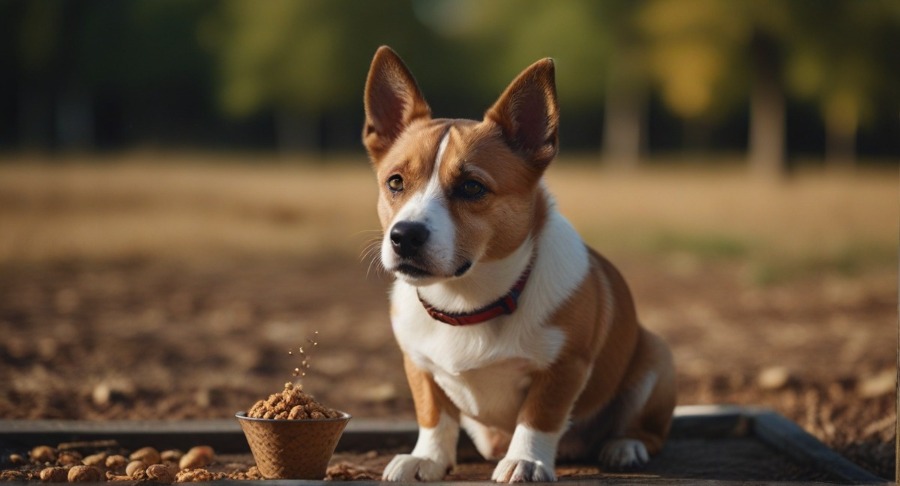
Components for Healthy Weight Gain
🐶 Meal frequency should increase
🐕 Introduction of new food types gradually
🐩 Regular weighing of your pup
🐾 Proper rest & sleep
🦴 Daily exercise routine
🐶 Avoidance of sudden dietary fluctuations
🐕 Regular vet consultations & checkups
Hydration: An Aspect Not To Be Neglected
Adequate hydration is essential for your dog’s overall health & well-being. Water consumption aids digestion & nutrient absorption. Thereby contributing To healthy weight gain.
Ensure your dog has access to fresh, clean water at all times. A daily intake equivalent To 70% of your dog’s body weight in fluid ounces is recommended.
Dehydration can lead To a loss of appetite. Thus impeding weight gain. Watching out for signs of dehydration & promptly addressing them is important.
Patience & Consistency Are Key
Patience forms The crux of responsible pet parenting. Healthy weight gain in dogs takes time. Just like with humans. Rapid weight gain can lead To a spectrum of health issues.
Consistency in feeding habits. Meal times & content will help make the gain process smooth. A steady increase in The quantity & quality of your dog’s feed will bolster weight gain.
Lastly. Positive reinforcement & love pave the way for your dog’s successful weight-gain journey. Each dog is unique, & their diet must reflect their individual needs & personality.
Optimum Selection for Food that Will Boost Your Dog’s Weight Gain
If a canine requires weight gain,. Then specific food considerations are essential. Weight gain becomes imperative when dogs are underweight due To illnesses. Malnutrition. Or lack of appetite. For a healthy weight gain. It’s crucial To focus on high-quality food that’s rich in protein & nutrients.
However. Not every food option will yield expected results. Unique tastes. Dietary needs & size of The dog play a vital role in selecting what would work best. Hence. A focus on diverse options that cater To these factors can aid significant weight gain.
It’s important To avoid unhealthy ‘quick fixes’ that may present health risks. Despite providing immediate weight gain,. Routinely balanced meals are ultimate solutions for long-term. Healthy weight gain.
Protein-rich foods for Increased Canine Weight
Protein facilitates weight gain & muscle development in dogs. Focusing on protein-rich dog food can therefore boost weight gain effectively. This includes chicken. Fish. Beef & even insects, which are exceptional protein sources,.
Dehydrated or raw meat is another good choice, as they are free from extra carbohydrates that could jeopardize your dog’s health. Such food sources provide energy required by dogs for their exercise & daily routines.
However. Protein alone isn’t sufficient for weight gain. Pairing protein with other nutrients Creating balanced meals is key for a healthy weight-gain process. Carbohydrates & fats are equally beneficial & should not be overlooked
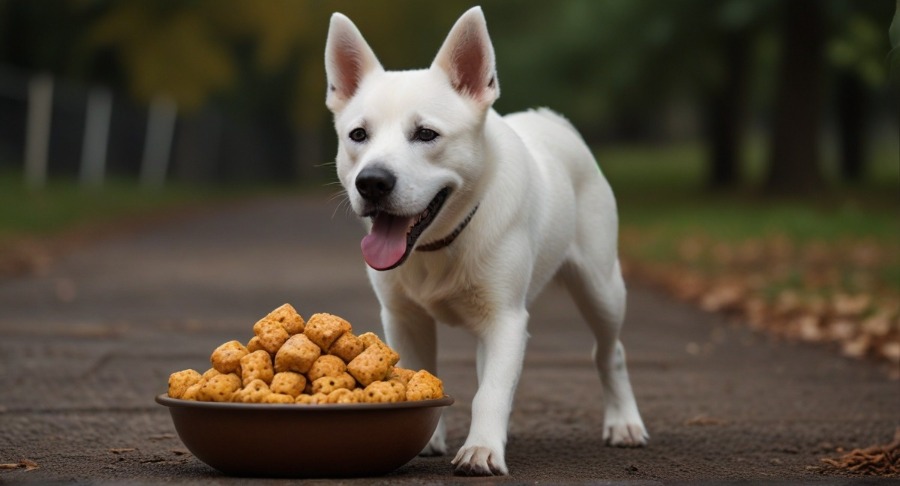
The Importance of Adequate Fats & Carbohydrates
Fats are beneficial for dogs’ weight gain. While some consider these harmful,. With balanced use, they can benefit your pet. Fish oils & animal fats are good options as they are high in omega-3 and omega-6 fatty acids.
These healthy fats support dogs’ overall wellbeing & also enhance taste. Making meals more appealing To pets. However. Moderation remains the golden rule, as excessive fat can lead to obesity. Causing undue health concerns.
In addition to fats,. Carbohydrates can boost weight gain in dogs, too. Foods like rice. Barley. Oats & potatoes are examples of good carbohydrate sources. Though carbs should be included in your dog’s meals,. Provide these in controlled portions To avoid excessive weight gain.
Benefits of Homemade Foods for Dogs
Prepared meals at home have benefits; you control what goes into your dog’s dish. Feeding dogs homemade food allows for The addition of necessary nutrients while eliminating harmful elements. It provides a proactive approach to increasing canine weight. Explore more on homemade dog meals for weight gain here.
From my personal experience. I’ve seen a considerable increase in my dog’s weight since introducing homemade meals. I started by adding lean chicken. Brown rice & assorted vegetables are part of his food regime. The result has been a healthy weight gain along with a noticeable increase in energy.
However. A vet’s advice is crucial when considering this regimen. They provide guidance on foods not beneficial for dogs & may even offer specific preparatory suggestions.
Commercial Dog Food for Weight Gain
While homemade foods are great,. Commercial dog foods specially formulated for weight gain can be extremely effective. These products balance protein. Fats & carbohydrates. Are rich in vitamins & minerals & are designed to aid in a healthy weight-gain process.
It’s crucial To select high-quality commercial food. Budget brands often include fillers & lack essential nutrients. Quality brands focused on providing wholesome. Balanced meals should be your choice. Pet Foodtopia offers a range of such quality products.
Again, a vet consultation is recommended prior to switching to a new brand or product. Their expertise would ensure your dog benefits from The new food without any adverse effects.
Monitoring Progress after Diet Changes
Once you’ve started a new diet for your dog,. Monitoring any changes becomes significantly more important. Regular weight checks & keen observance of dog’s behavior can tell you a lot about their health.
If weight gain seems uncontrollable or if adverse reactions appear,. Get immediate vet assistance. Your vet can provide insights on your dog’s metabolism & guidance on necessary adjustments required in The diet.
Remember. Every dog is unique. What works for one may not be as effective with another. Thus, thorough monitoring & regular vet checkups are mandatory to ensure a healthy weight-gain journey.
Weight Gain Dog Food Comparison
Let’s explore some top-brand dog foods & their features that boost canine weight gain:
| 💼 Brand | 🍖 Main Protein Source | 🧪Carbohydrates% | 🧬 Fat% |
|---|---|---|---|
| Purina Pro Plan | Chicken | 28% | 20% |
| Merrick Grain-Free | Buffalo | 20% | 15% |
| Blue Buffalo Wilderness | Salmon | 25% | 15% |
Supplementing Meals for Enhanced Weight Gain
Supplements can also elevate weight gain in dogs. Especially when paired with a balanced diet. Supplements like “bully max,” “Gorilla Mac,” & “Dyne” are trusted options that help increase weight without harming dogs’ health or vitality.
While effective. These should be used in moderation. An overdose of these supplements might lead To health complications. Hence. Always consult a vet before introducing supplements into your dog’s diet.
Essentially. Supplements are not replacements for healthy meals. But contribute To hastening The weight gain process. They work best when included in a diet that’s balanced. Offering diverse sonic nutrients.
Human Foods That Dogs Can Safely Consume
Concerning human foods that dogs can safely eat,. There’s been an increasing acceptance in recent times. Foods like carrots. Bananas. Apples. Quinoa. Sweet potatoes can be incorporated into your dog’s diet for weight gain.
However. Offering these in significant quantities is not recommended. Including small, nutritious portions of these foods in your dog’s meals brings in variety & added nutrients beneficial for weight gain.
Forbidden foods could be harmful To your dog. Avoid feeding dogs foods like chocolate. Grapes. Onion. Garlic or alcohol. As they can cause severe health problems.
Frequent Feeding & Exercise: Two Pillars of Healthy Canine Weight Gain
Healthy weight gain doesn’t merely revolve around The intake; The outflow is equally significant. Exercise is an essential part of any weight-gain regime. Regular walks. Playtime & exercise can keep a dog active & also help in muscle development.
As for feeding,. Instead of 2 large meals. 45 smaller meals throughout The day can be more beneficial. This way. Dogs can better digest The food, & it could further aid in weight gain. Find out how small frequent meals can help fatten your dog here.
Inadequate portion control or a lack of exercise, along with high-calorie, dense foods, may cause obesity. Also associated with adverse health conditions. Hence. Maintaining a balance in diet & exercise is crucial for promoting healthy weight gain in dogs.
FAQs
What are some high-quality foods for dogs that need To gain weight?
High-quality dry food is often recommended for dogs that need To gain weight. Look for brands that contain plenty of protein & fats from animal-based sources. Foods rich in calories & nutrients, like beef. Chicken. Fish. Sweet potato. Brown rice & vegetables are superb options.
Are grain-free foods beneficial for weight gain in dogs?
Not necessarily. While grain-free foods are often marketed as more nutritious,. They’re not always higher in calories or more digestible than grain-inclusive diets. Some dogs may need grains for a well-rounded diet & healthy weight gain. Always consult with your vet before switching your dog’s diet.
Can I give my dog human food To help them gain weight?
Yes. But in moderation & with caution. While some human foods can benefit dogs & help them gain weight,. Others may be harmful. Stick To lean meats. Plain rice & certain fruits & vegetables. Always avoid chocolate. Grapes. Raisins. Onions. Garlic & foods high in fat or sodium.
What are some signs that my dog may need To gain weight?
Visible ribs. Spine & hip bones are clear signs your dog may need to gain weight. Other signs can include a loss of muscle mass. Lethargy & changes in appetite & behavior. Always consult with a vet if you think your dog may be underweight.
How often should I feed my dog To help them gain weight?
It’s often recommended to feed smaller dogs. More frequent meals throughout The day To aid weight gain. This can help keep their metabolism steady & avoid overloading their digestive system. Be sure To source these meals from high-quality foods packed with The right balance of nutrients.
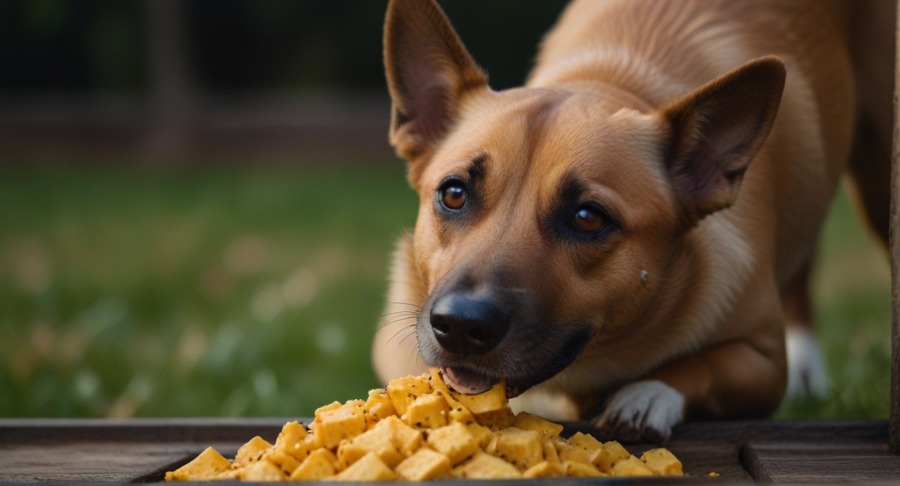
Conclusion
After going through our discussion on the best foods for dogs to gain weight, one thing is clear: it’s not just about increasing the quantity of food you provide to your pooch, but more about the quality of your diet. High-protein foods, puppy food, & foods enhanced with healthy fats can really help your dog put on some pounds. These foods not only help to bulk up your furry friend, but they also provide all the necessary nutrients, ensuring they’ll be as healthy as possible. Including more frequent meals Incorporating high-calorie snacks into your pet’s routine can also assist in weight gain. Supplements like probiotics, vitamins & minerals could be added as per vet’s advice. Remember, while it’s important to help your dog gain weight, it’s crucial not to overfeed them, as this could lead to obesity & other health problems. Always consult your vet before making any significant changes To your dog’s diet or lifestyle. In The end, it’s all about balance. Making sure your dog is getting enough calories, but not too many, & ensuring they are getting a balanced diet full of nutrient-rich foods that will keep them fit & happy. So, while helping your underweight dog pile on a few extra pounds, make sure their health & well-being remain the priority. You have a pretty good idea now about which foods can help. It’s time to get your best friend’s tail wagging with some yummy, nourishing meals.


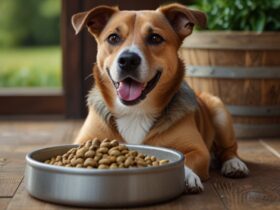

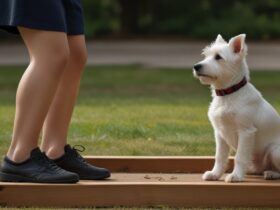
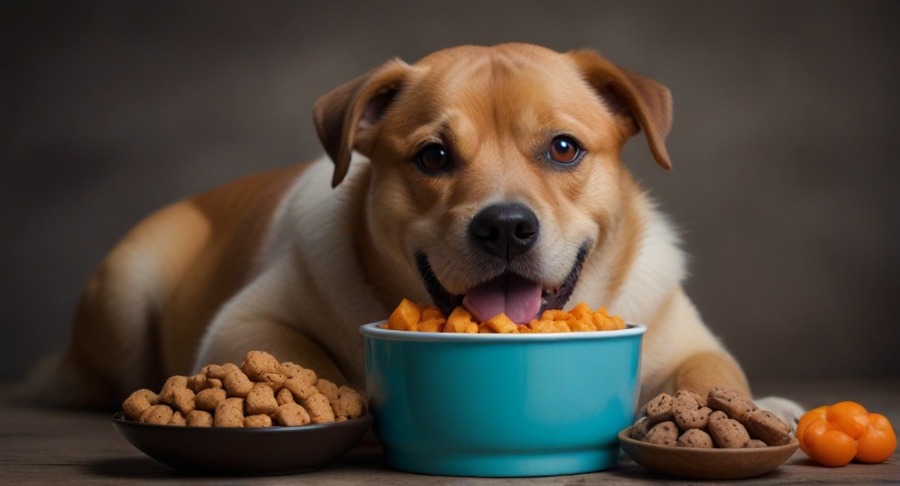

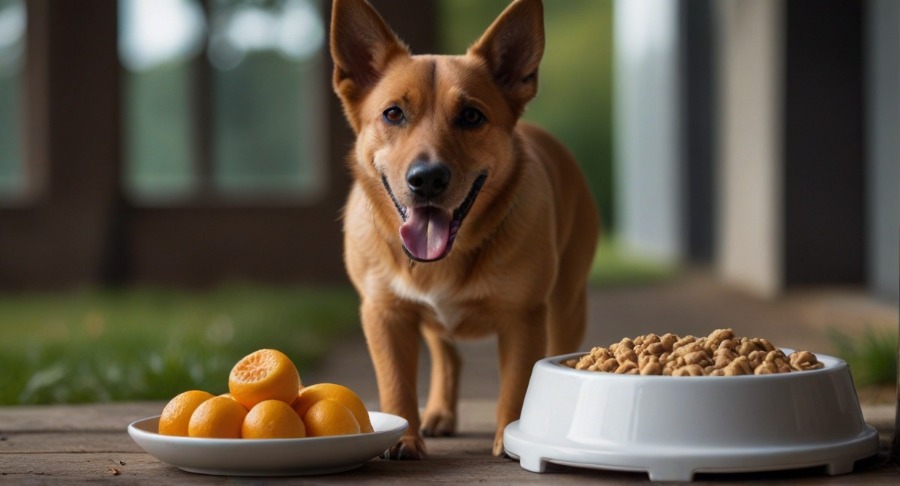


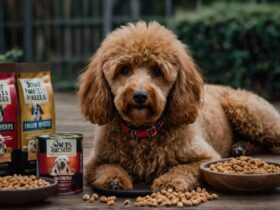

Leave a Review